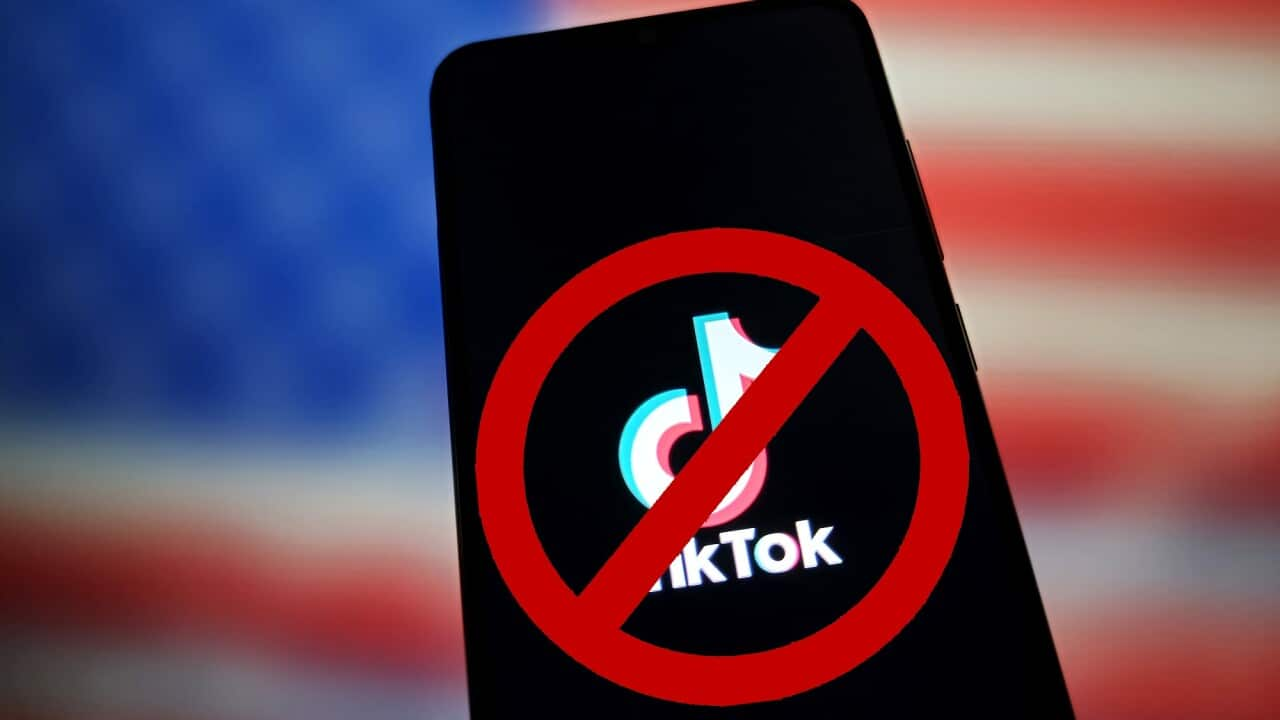TRANSCRIPT
A ban on TikTok could pass in the United States this week.
The platform's Chinese owner ByteDance is being forced to either sell its US operations or shut them down by Sunday.
"So what we're currently experiencing is this period where TikTok is being forced by US lawmakers to actually divest. So what they want is for TikTok to be fully independent, to not be potentially used by Chinese government."
That's social media commentator and chief executive officer of social media consultancy Battenhall, Drew Benvie.
He says TikTok has roughly 170 million American users, which means it has data from almost half the US population.
"Users and governments, especially in Western economies, started to get concerned that the Chinese government were harvesting data from users phones, looking at user activity and maybe even shaping what users see on TikTok. So it's all about concerns whether the Chinese owners are using the apps that we use here in the West day to day, and manipulating them in certain ways."
Last year, the US Congress passed a law to ban the app, despite repeated assurances from its Chief Executive Shou Zi Chew that TikTok does not promote or remove content at the request of the Chinese government.
The US Supreme Court has heard arguments around the ban's implications for freedom of speech.
It could still review or delay the ban, although that seems unlikely.
Mr Benvie says TikTok is yet to announce a response.
"TikTok is saying that there's a plan, but it's not saying what the plan is, probably because it's going to be right down to the line."
So, what would a ban look like?
The law puts the burden on app stores and cloud service providers, who won't be able to "distribute, maintain, or update" the application.
That means Google and Apple are likely to remove TikTok from their app stores, and Americans who don't already have TikTok won't be able to download it.
Users who already have the app will be able to keep it, but they won't be able to update it, eventually making it unusable.
Meanwhile, cloud service provider Oracle - the American tech company that hosts most of TikTok's US data - may simply stop hosting the data on their servers, which could lead to a full US shutdown.
So, while it's unlikely TikTok will disappear overnight, US users say the impact of eventually losing it would be huge.
"TikTok has kind of become something that is more than just an entertainment app. It's where you connect, it's where you find your people. It's a way to actually engage with your community, whether that might be something that you're interested in, or your actual neighborhood. The communication that is found on TikTok is really unmatched. And also it's the income. A lot of people are making money off TikTok. A lot of people are supporting their families through it."
Some users have used the app, while they still have it, to mock the potential ban...
"But we have to be on TikTok because China is using our data. Well, did you ever think for a second that I want to give them my data?"
...saying US platforms such as Meta's Instagram and Facebook are no better when it comes to taking personal information to sell to other companies.
Users are also protesting in other ways, choosing to join another Chinese-owned app in protest called RedNote, where they call themselves "TikTok refugees".
Milovan Savic is a research fellow at Swinburne University of Technology, specialising in social media.
He says TikTok users are specifically choosing RedNote as their new home because of its Chinese origins, replacing the fear over one Chinese app with another.
"I think at this time, there is a wave of protest and enthusiasm. But we can also see that a lot of users actually struggle to navigate the app because it's designed for a Chinese market. And it is all in Chinese, so it is not even translated."
He says whether RedNote stands a chance of being adopted long-term will depend on its ability to tackle translation early on.
Democratic senators are urging President Joe Biden to extend the deadline on TikTok by 90 days before he leaves office, essentially deferring the issue to President-elect Donald Trump.
And despite trying, and failing, to implement a ban during his first term, Trump has vowed to try and save TikTok after his inauguration next week.
As for Australia, the ban won't technically affect any users.
But Dr Savic says the ban may have a domino effect.
"If it's banned in the US, that would also mean there would be less content created. So, while Australian users might still have access to the app, they might not enjoy it as much because, obviously, the content will be significantly reduced. Maybe some of their favourite creators, or pages they follow will just disappear."













